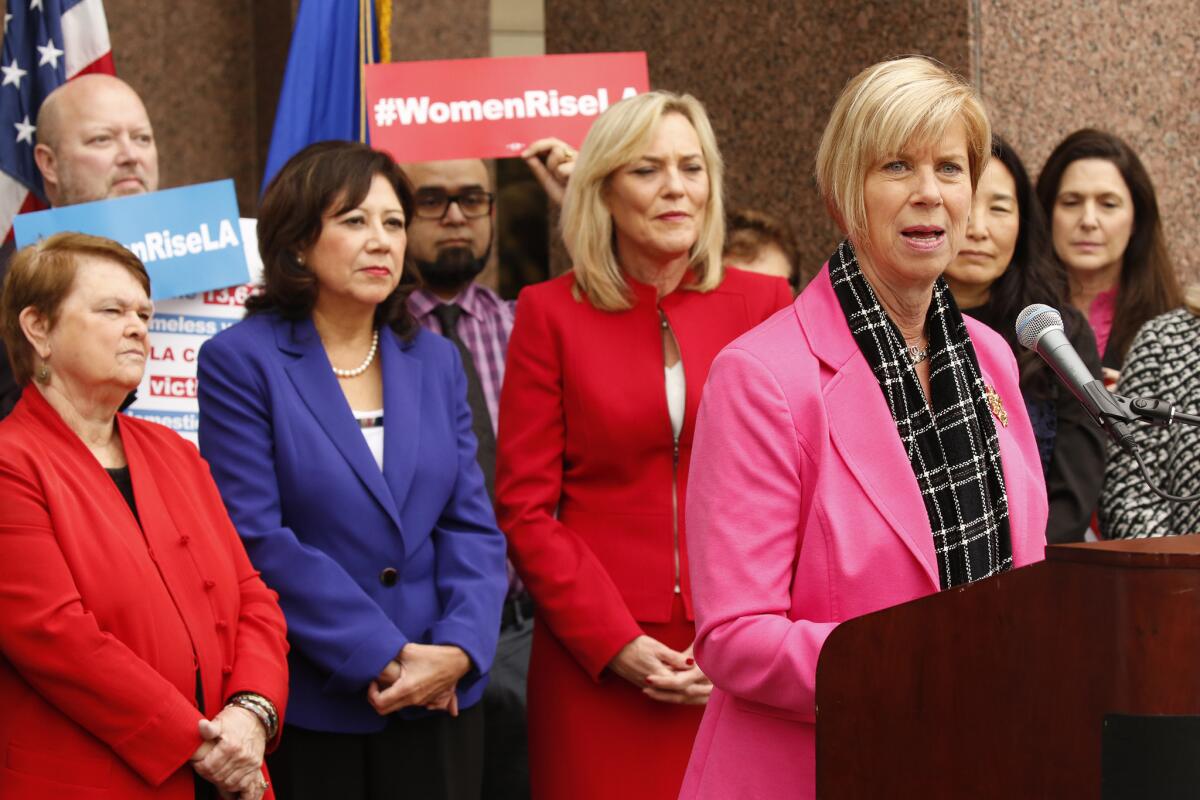Editorial: L.A. Countyâs Board of Supervisors broke the law last week. Twice

Itâs important to keep an eye on elected officials even, and perhaps especially, at a time of life-and-death emergency when government properly takes on extraordinary powers. If the public is to respect rules that require them to make some sacrifices, such as by shutting businesses and avoiding parks and beaches, it has the right to expect at the very least that its officials will exercise only legitimate powers that protect health and safety, and not ignore fundamental obligations that remain in place during the emergency.
In the last week, the Los Angeles County Board of Supervisors appears to have twice broken laws that require it to do its work in public, with public input and public oversight.
On March 31, it met and took action on a number of crucial items without giving the public the chance to participate in real time. Thatâs a violation of the Ralph M. Brown Act open meetings law, even in the wake of a pair of executive orders by Gov. Gavin Newsom that loosen requirements to meet in public places.
No big deal? Donât be too sure. Open meeting laws help to prevent precipitous actions taken with incomplete information. County supervisors may be irritated by the fact that public comment leads to longer meetings, but nothing in the governorâs orders relieves elected officials from irritation â or the duty to do their work in public.
Then on April 3 the board sent a letter scolding Sheriff Alex Villanueva for making inaccurate and irresponsible â and ignorant, to be frank â statements about whether deputies placed on leave would be paid.
As The Times reported Friday, the sheriffâs false and misleading statements led some commenters to post social media threats against the countyâs chief executive officer, Sachi Hamai. Villanueva fumbled badly, and he deserved (at very least) the boardâs angry letter in response.
But writing, signing and sending that letter is a lawful act by the Board of Supervisors only after a public vote, which can take place only after a public discussion in a public meeting. Why? Because itâs an act taken on behalf of the public. In this case, it was a righteous letter, but how many other letters applying pressure â or expressing support, or promising favors â does the board send without public notice to others? How many other times does the board conduct unlawful âserial meetings,â in which the members collectively take action by adding their names to a proposal that requires public airing?
The board enjoys extraordinary powers because of the public health emergency, but itâs acting as though the governorâs orders or the countyâs emergency ordinance relieve it of its duty to be open and aboveboard. They donât. The best way for the board to show it has gotten the message would be to provide for real-time public input via phone lines or the internet at its April 14 meeting, just as city councils, school boards and other public bodies have done at their meetings.
The justices give police the OK to stop drivers with nothing more than the barest fig leaf of a reason: that the car ownerâs license has been revoked.
More to Read
A cure for the common opinion
Get thought-provoking perspectives with our weekly newsletter.
You may occasionally receive promotional content from the Los Angeles Times.










